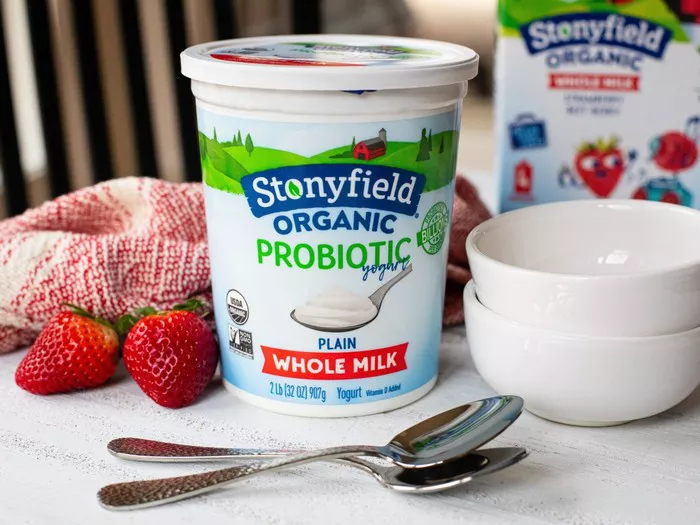Introducing solid foods to your baby is an exciting milestone, but it can also be filled with questions and uncertainties. One common query among parents is whether yogurt is suitable for their infant, and if so, what kind of yogurt should be offered. This article aims to provide a detailed guide on selecting the best yogurt for your 6-month-old, considering nutritional benefits, potential risks, and practical tips for introduction.
Nutritional Benefits of Yogurt for Infants
Yogurt can be a nutritious addition to your baby’s diet. It is packed with essential nutrients that support growth and development. Here are some key benefits:
Protein
Yogurt is an excellent source of protein, crucial for your baby’s growth and development. Protein helps build and repair tissues, produce enzymes and hormones, and support overall bodily functions.
Calcium
Calcium is essential for developing strong bones and teeth. Yogurt provides a substantial amount of calcium, which is critical during the rapid growth phase of infancy.
Probiotics
Many yogurts contain probiotics, which are beneficial bacteria that promote a healthy gut. A healthy gut can enhance digestion and boost the immune system, which is particularly important for infants.
Vitamins and Minerals
Yogurt is rich in several vitamins and minerals, including B vitamins, phosphorus, and potassium. These nutrients support various bodily functions, from energy production to maintaining healthy cells and tissues.
When to Introduce Yogurt to Your Baby
Age Appropriateness
Pediatricians generally recommend introducing yogurt around 6 months of age. At this stage, most babies are ready to start solid foods and can benefit from the nutrients yogurt offers.
Signs of Readiness
Before introducing yogurt, ensure your baby shows signs of readiness for solid foods. These signs include being able to sit up with support, showing interest in food, and being able to move food from the front of the mouth to the back.
Choosing the Right Yogurt
Plain, Unsweetened Yogurt
Plain, unsweetened yogurt is the best choice for infants. Avoid flavored or sweetened yogurts, as they contain added sugars that are not suitable for babies.
Whole Milk Yogurt
Choose whole milk yogurt rather than low-fat or non-fat versions. Infants need the fat content for brain development and overall growth.
Organic Yogurt
Organic yogurt can be a good option as it is made from milk produced without the use of antibiotics or hormones. However, it is not a necessity; plain whole milk yogurt is sufficient.
Greek Yogurt
Greek yogurt is a popular choice due to its thick texture and higher protein content. However, it can be more acidic than regular yogurt, so it’s best to introduce it in small amounts and observe your baby’s reaction.
Potential Allergies and Intolerances
Dairy Allergies
Some babies may be allergic to dairy proteins. Signs of a dairy allergy include rash, vomiting, diarrhea, and irritability. If you suspect a dairy allergy, consult your pediatrician before introducing yogurt.
Lactose Intolerance
Lactose intolerance is less common in infants but can still occur. Symptoms include bloating, gas, and diarrhea after consuming dairy products. If your baby shows these signs, speak with your pediatrician.
How to Introduce Yogurt to Your Baby
Start Small
Begin with a small amount of yogurt, about one to two teaspoons, to see how your baby reacts. Gradually increase the amount if there are no adverse reactions.
Mix with Pureed Fruits or Vegetables
To enhance flavor and nutritional value, mix plain yogurt with pureed fruits or vegetables. This can make the yogurt more appealing and provide additional vitamins and minerals.
Monitor for Reactions
After introducing yogurt, monitor your baby for any signs of allergies or intolerances. If any symptoms occur, discontinue the yogurt and consult your pediatrician.
Incorporating Yogurt into Your Baby’s Diet
Breakfast
Yogurt can be a great addition to breakfast. Serve it with mashed bananas or apple puree for a nutritious start to the day.
Snacks
Offer yogurt as a healthy snack option. It can be served plain or mixed with finely mashed fruits.
See Also: What Car Seat Should I Buy for My Newborn: A Complete Guide
Mealtime
Yogurt can also be incorporated into meals. Mix it into cooked vegetables or use it as a dip for steamed veggie sticks.
Homemade vs. Store-Bought Yogurt
Homemade Yogurt
Making yogurt at home allows you to control the ingredients and ensure it is free from additives. It can be a cost-effective and healthy option.
Store-Bought Yogurt
Store-bought yogurt is convenient and widely available. When choosing store-bought yogurt, ensure it is plain, unsweetened, and made from whole milk.
Common Questions and Concerns
Can I Give My Baby Flavored Yogurt?
It’s best to avoid flavored yogurts due to their high sugar content. Stick to plain, unsweetened yogurt and add natural flavors with pureed fruits.
How Much Yogurt Should I Give My Baby?
Start with small amounts and gradually increase as your baby gets accustomed to the texture and taste. A serving size of 1/4 to 1/2 cup is generally appropriate for infants.
Is Greek Yogurt Safe for Babies?
Greek yogurt is safe for babies but should be introduced gradually. Its thicker consistency and higher protein content can be beneficial, but monitor your baby’s reaction to its acidity.
Can Yogurt Replace Milk?
Yogurt can be a part of your baby’s diet, but it should not replace breast milk or formula, which are essential for providing complete nutrition in the first year.
Conclusion
Introducing yogurt to your 6-month-old can be a nutritious and enjoyable experience. By choosing plain, whole milk yogurt and gradually incorporating it into your baby’s diet, you can provide essential nutrients that support growth and development. Always monitor for any adverse reactions and consult your pediatrician if you have concerns. With the right approach, yogurt can become a valuable part of your baby’s balanced diet.


